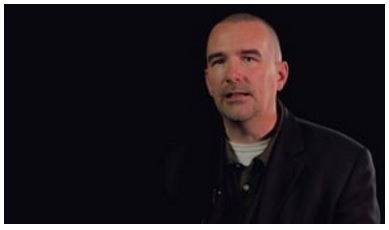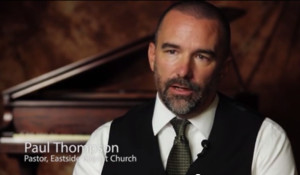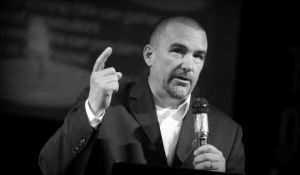(Today, October 15, 2018 is the first day of early voting in Idaho. I’m, admittedly, a stick in the mud when it comes to voting on “election day” and, yes, I realize that this new day of early elections means that “election day” began today. I’m just that way.)
Proposition 1 – Is it about horse racing or rapid-bet slot machine gambling?
The way we answer this depends on what the question is.
Is it important for a Christian to know what the question is in order to make a well informed and responsible decision on how to cast a vote on the matter on November 6, 2018? Yes, I think it is.
The thoughts I want to express here are not to tell anyone how to vote, but mostly to give an example on how to think through how this proposition is being presented. I think this is an important exercise to even do with your children. We need to be better listeners and better thinkers.
If you have not read the proposition then that is obviously a first thing that needs to be done in order to make a reasonable and responsible conclusion. Warning, it is a very lengthy read. But if one is to be a well informed and responsible voter then it is on us to read it. (see LINK). There can be great confusion surrounding propositions. Sometimes this is intentional.
DISCLAIMER: What I express in the following paragraphs is my opinion and is not an official opinion of any organization I represent. It is an attempt to help myself think through my opinion and to help others become better thinkers, even if the reader does not agree with my conclusion.
When I’m done reading a document like this proposition it requires me some extra time to process what’s being said and what the sponsors want to accomplish with the way they word the proposition. I’m not afraid to read a document like this with a dictionary in my lap to understand what the drafters of it want me to know and compared to what words they are using to persuade the reader to vote for it. (I do the same thing with any document the opponents write and encourage the reader to do the same with what I have to say.
I have to be intellectually honest from the beginning and realize everything I read, write, and think comes with at least some kind of bias. It’s a rare thing to have a completely unbiased opinion. This is a starting point that needs to be understood at the start.
I could make a case against gambling quickly based on what my family, my church, personal examinations have influenced me historically and presently.
That’s a long disclaimer. Wow!
Proposition 1 on the (October 15 -) November 6 ballot in Idaho is known as the “Save Horse Racing in Idaho Act”.
So, some unpacking and good research was required to get a better understanding of this proposition. You’ll need to do the same and your conclusion may or may not be the same as mine. But at the end of the conversation we are at least better informed.
I will express some things with some levels of assumption on behalf of the reader. Otherwise this piece may become so long that no one would ever finish it. I will post my discussion of this from this past Sunday night that may aid in some additional background information.
First: We have a proposition before the people of Idaho to “deregulate an industry and celebrate western history”. This resonates with anyone in the west. We are all the time talking about not wanting government regulation and of course we want to celebrate western history. But we have to be better disciplined than just responding to this kind of language.
For the follower of Christ, we come to Scripture as a lamp to illuminate our path even if it doesn’t directly speak to an issue. With the aid of the Holy Spirit we can apply biblical principles and precepts as we form a conclusion. And at the same time be at peace that not everyone may come to the same conclusion.
Case and point.
I start with how the gambling “industry” presents the matter and how does that sit with the principles of Scripture. I weigh in the way God describes the normal means of earning wages and then consider the health of a civilization in that economy with regard to not only how they earn a wage, but also in how the wage is spent to support the economy.
For example, an employer decides the value of his product and has to calculate the kind of wage he pays his employees with consideration to the likelihood a consumer is willing or able to pay for the product and for the employer to still make a reasonable profit. (I’m not an economist, I’m just trying to think this through. I’m sure there’s more to the equation than this.)
Again, God uses language in Scripture that implies an established economy that has a foundation of a people earning a wage and then purchasing or trading fairly in the marketplace for equal or fair exchange.
This first observation is a much longer discussion than this space allows, but it does at least expose a flaw in the appeal of bigger than normal reward for smaller than expected expense. This is an appeal to live in an altogether different economy than what the Bible would describe. I admit there are parts of my written expression here that does not unfold every question raised. After all, some would say, don’t you stop by Sonic on a regular basis and purchase a soft drink? Isn’t that wasteful and irresponsible? Let’s have that conversation some day, but I’ve already exceeded the work count limit of most readers of blogs.
I want to give the benefit of the doubt as best as I can to the sponsors of this proposition. I don’t like thinking the worst about someone without cause. So, I read and think about what they are saying.
I do have to say that the phrasing of the promotion for this proposition sounds disingenuous. I’m not accusing anyone of being deceitful unless it is shown that the use or lack of use of words is intentional to confuse rather than to clarify.
Let me just get to the point.
- Is the legal horse racing industry in Idaho really in danger? (In danger of what? Financially bankrupt? If so, isn’t that the way a normal economy works? When there are not enough consumers for a particular product or service that same industry normally closes its doors. Is it the role of a government to then make a way for that industry to continue doing what people aren’t interested in by letting them do something different, that is unconstitutional, so they can continue calling that illegal activity under the name of the historic industry? Now I’m confused.)
- Have people lost jobs since this kind of gaming was declared unconstitutional in 2015? (I don’t make light of the reality that jobs are serious.)
- Is this a proposition to restore “historical horse racing”? (This is really a serious question to be asking.)
It does appear that the legal horse racing industry in Idaho is financially suffering. People have lost their jobs since this kind of gaming was declared unconstitutional in Idaho. “Historical Horse Racing” (HHR) has nothing to do with live horse racing.
It is a slot machine style game (just do a little research) that the gamer places bets on historical horse races with a pool of other gamers. No one knows what historical race they are betting on but they are apparently making calculated guesses on an unnamed horse in an unnamed race in an unknown year for the hopes of winning (big) against the others betting with them at the same time in the same location.
So, let me state some kind of conclusion.
When I read about proposition 1, it sounds like it is all about horse racing. This is, in my opinion, dishonest marketing. It is not about horse racing, it is about highly addictive, rapid-bet (slot) machine gambling. It has been well documented that this kind of gaming is geared to attract undisciplined recreators and the long term impact is negative upon the family, the economy, emotional, and spirituality of a civilization and the promise of funding education is always part of the deal, where it is again documented that education benefits little from lottery/gaming industries.
Let’s talk about this (kindly)… What do you think?



